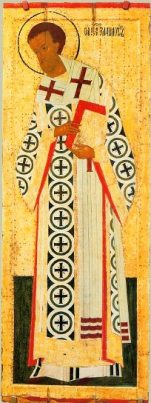
This week, the bane of preachers everywhere returns. When the clock strikes noon on Sunday in America’s heartland, anxious Christians will clear their throats, shift positions in their seats, and hope the pastor’s next words are “in conclusion.” Some Christians living in the Mountain West and on the Pacific Coast might decide to skip church altogether. Because the NFL is back. And pastors will once again wonder privately how members can forget everything about that morning’s sermon but recall detailed statistical information for scores of players they “own” in fantasy football leagues.
Few preachers I know would dare mention this frustration in a sermon. You might as well complain about the weather as lament the NFL’s popularity. You can’t do anything to change either. Pastors don’t want to come across as puritanical or legalistic. We have moved beyond previous generations’ complaints about card-playing, dancing, theatre-going, and Sunday sports. What many Christians may not realize, however, is that these pastoral concerns run all the way back past the fundamentalists, beyond the Puritans, to the early church. Even those of us who love to watch the pigskin fly would be wise to consider the warning from the most famous preacher in early Christianity.
Born in 347 and raised in Antioch, John earned his famous surname, Chrysostom, for a lifetime of faithful, courageous preaching. But the man with the golden mouth didn’t always have a golden touch with his opponents. And the opponents mounted as John, who became patriarch of Constantinople in 398, turned his gift for rhetoric against the decadent Roman rulers. Facing illegitimate charges of heresy, Chrysostom was sent into exile. The strain of transport at his advanced age during summer heat weakened Chrysostom, and he died in 407.
Chrysostom impressed and inspired fellow Christians with his extensive knowledge of Scripture. One biographer wrote that he memorized the New Testament during a two-year stint spent living in a cave. He left behind a wealth of sermons that show his high regard for the Bible’s authority. For the most part, Chrysostom preached expositionally. He preferred to work his way, sermon by sermon, through books of the Bible. Each series started with his take on the letter’s main argument derived from study of authorship and historical context. Then he marched through the book verse by verse while still keeping the book’s overarching theme and continuity before his congregation. With regard for his contemporary context, John closed his sermons with exhortations to live out the gospel of Jesus Christ in light of the passage they had considered together.
Like many preachers, John had his favorite foils. He championed the ascetic lifestyle, which frees up money for the poor and cultivates deep spiritual reflection. Leisure pursuits recur often as targets of his scorn. He took issue with Christians who could tell you anything you wanted to know about the last horse race but couldn’t even identify which letters Paul wrote. He wasn’t impressed when crowds cheered his sermons, because he knew that many Christians forgot everything as soon as they left church and turned their attention to sports. While not sinful in themselves, leisure activities can lead to sin, Chrysostom believed.
“Again, to go to the theatres, or to survey the horse-race, or to play at dice, does not seem, to most men, to be an admitted crime; but it introduces into our life an infinite host of miseries,” Chrysostom preached. “For spending time in the theatres produces fornication, intemperance, and every kind of impurity. The spectacle of the horse-race also brings about fightings, railings, blows, insults, and lasting enmities. And a passion for dice-playing hath often caused blasphemies, injuries, anger, reproaches, and a thousand other things more fearful still. Therefore, let us not only avoid sins, but those things too which seem to be indifferent, yet by degrees lead us into these misdeeds.”
Chrysostom seemed to understand that his sermons could come across as harsh. But he labored to put this passing life in proper perspective. Games can offer momentary escape from this life. So we fritter away valuable time and miss out on the greater things God would have for us. Chrysostom was neither the first nor last pastor to worry about frivolity. But before we rush out of church to catch the Sunday kickoff, we might consider whether his words hit home still today.
* * *
Image: Icon of St. John Chrysostom by Dionisius, 1502, via Wikimedia Commons.








